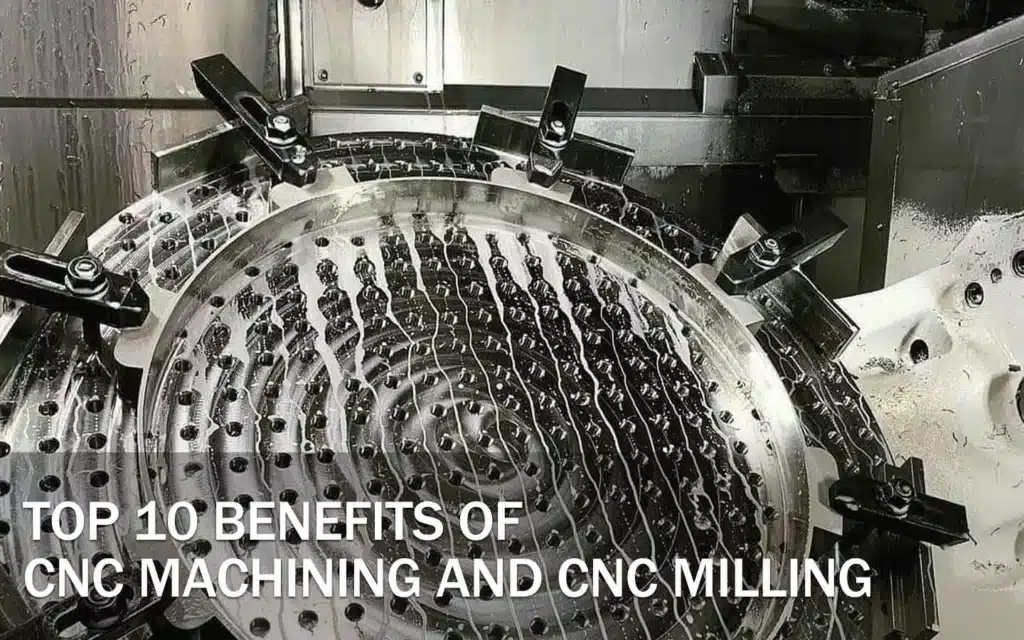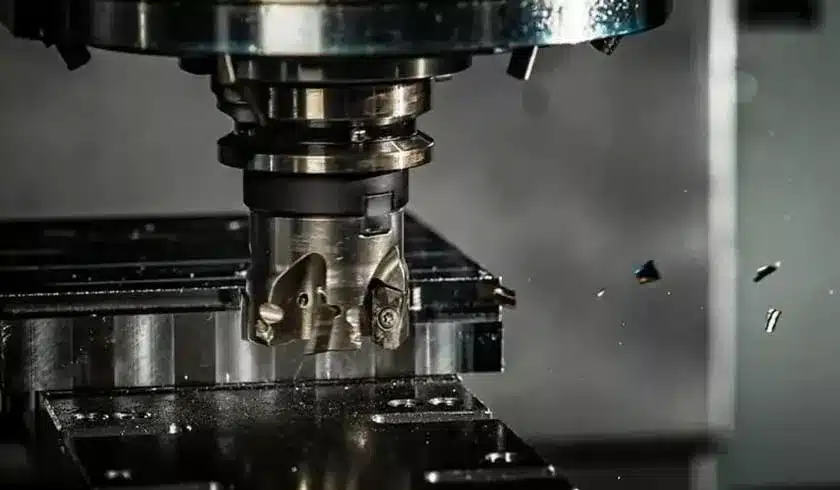Struggling with inefficient machining processes? Discover how CNC machining and milling can revolutionize your production, saving time and costs.
CNC machining and milling offer precision, efficiency, and versatility, making them indispensable in modern manufacturing. Explore the top 10 benefits that set them apart.
Let’s delve into the world of CNC technology and uncover its advantages.
CNC Machining Overview
CNC machining, or Computer Numerical Control machining, is a transformative manufacturing process that uses computerized controls to operate tools like mills, lathes, and grinders. Known as CNC stands for machine control, this technology automates the production of precise, complex parts, answering the question: CNC machining what is it? It relies on software, typically CAD (Computer-Aided Design) and CAM (Computer-Aided Manufacturing), to convert designs into numerical code, often G-code, directing machine movements.
So, what does CNC mean in machining? It signifies a shift from manual to automated precision, vital for industries like aerospace and automotive. What is CNC manufacturing? It’s the process of creating parts with minimal human intervention, enhancing efficiency. CNC milling, a key subset, uses rotary cutters to shape materials, addressing what does a cnc mill do? by crafting intricate features like slots and contours.
The benefits of CNC machining include unparalleled accuracy, as machines follow exact instructions, reducing errors common in manual methods. CNC machine what does it do? It produces consistent, high-quality components swiftly, boosting productivity. Operating 24/7 with little oversight, CNC machinery cuts labor costs and speeds up production, offering significant cnc machine advantages. Safety improves too, as automation limits operator exposure to hazards.
This overview highlights why CNC machining and milling are cornerstones of modern manufacturing, delivering precision and efficiency that redefine production standards.
What are the Advantages of CNC Machines?
The advantages of CNC machines are vast, making them a game-changer in manufacturing. Here’s a detailed look at the benefits of CNC machining:
1. Precision and Accuracy
CNC machines deliver exceptional precision, a top advantage of cnc machining. Programmed instructions ensure parts meet exact specifications, crucial for industries needing tight tolerances.
2. Efficiency and Productivity
Automation allows CNC machines to run continuously, slashing production times. This advantage of cnc machinery boosts output and reduces delays, enhancing overall efficiency.
3. Versatility
From metals to plastics, CNC machines handle diverse materials and tasks. This cnc machine advantage supports rapid prototyping and custom production with ease.
4. Consistency
Repeatable programs ensure every part matches the last, a key advantage of cnc machines. This consistency maintains quality across large runs.
5. Reduced Labor Costs
Fewer skilled workers are needed, cutting expenses. This benefit of cnc machine offsets initial costs through long-term savings.
6. Safety
Automation minimizes direct tool contact, improving safety—a notable advantage of cnc machining. Operators work remotely, reducing risks.
7. Complex Geometries
CNC machines craft intricate shapes impossible manually, showcasing the advantages of cnc machinery. Multi-axis milling excels here.
8. Material Efficiency
Optimized cutting reduces waste, a practical benefit of cnc machining. This lowers costs and supports sustainability.
9. CAD/CAM Integration
Seamless software integration ensures designs translate perfectly, a technical cnc machine advantage that streamlines production.
10. Scalability
From prototypes to mass production, CNC machines scale effortlessly, rounding out the advantages of cnc machines.
These cnc machining benefits highlight why this technology dominates modern manufacturing, offering unmatched efficiency and quality.
What are the Disadvantages of a CNC Milling Machine?
While the benefits of CNC machine use are impressive, CNC milling machines have drawbacks worth considering:
High Initial Costs
The upfront investment for CNC milling machines is steep, a major hurdle despite the advantages of cnc machining. Software and tooling add to this expense.
Training Complexity
Operators need extensive training to master programming and setup, countering some cnc machine advantages. This complexity demands time and resources.
Maintenance Needs
Regular upkeep, from lubrication to repairs, is essential. Downtime and costs can offset advantages of cnc machines if not managed well.
Limited Flexibility
For simple or one-off tasks, manual methods may be faster, reducing the benefit of cnc machining in certain scenarios.
Software Dependency
Glitches or updates can disrupt production, a risk to the advantages of cnc machinery. Cybersecurity threats also loom.
Energy Use
High energy consumption raises costs and environmental impact, slightly dimming the cnc machining appeal.
Space Demands
Large machines need significant room, challenging for smaller facilities despite cnc machine advantages.
Skill Erosion
Over-reliance on automation may weaken manual skills, a subtle downside to the advantages of cnc machines.
These drawbacks show that while powerful, CNC milling requires careful planning to maximize its benefits of cnc machining.
Is CNC Machining Better Than Conventional Machining?
Comparing CNC to conventional machining reveals why CNC often leads, driven by its advantages of cnc machining:
Precision
CNC’s computerized precision trumps manual variability, a top cnc machine advantage. Consistency is unmatched.
Speed
Automation speeds up complex tasks, enhancing advantages of cnc machines over slower manual methods.
Versatility
CNC handles intricate designs effortlessly, a benefit of cnc machining conventional tools can’t match.
Safety
Reduced human involvement boosts safety, a clear advantage of cnc machinery over hands-on machining.
Cost Efficiency
Despite higher startup costs, CNC cuts labor and waste, amplifying advantages of cnc machining long-term.
Scalability
CNC scales seamlessly, unlike conventional methods, reinforcing its cnc machine advantages.
Conventional machining suits simple, small runs, but CNC’s benefits of cnc machine use make it superior for modern demands.
Conclusion
CNC machining and milling shine with precision, efficiency, and versatility, transforming manufacturing. These benefits of cnc machining outweigh initial costs, making them vital for quality and productivity.
FAQs
What is CNC machining?
CNC machining uses computerized controls to craft precise parts, a core benefit of cnc machining.
What does a CNC mill do?
It shapes materials with rotary cutters, showcasing advantages of cnc machines.
What are the advantages of CNC machines?
Precision, efficiency, and versatility top the cnc machine advantages.
Is CNC machining safe?
Yes, automation enhances safety, a key advantage of cnc machining.
How does CNC compare to conventional machining?
CNC offers superior precision and speed, amplifying benefits of cnc machining.
In summary, CNC machining and milling deliver precision, efficiency, and versatility, making them indispensable for modern manufacturing success.




